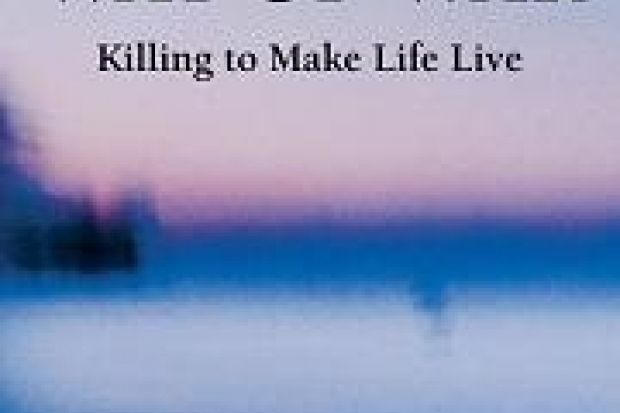The recurrence of war throughout human history is a pattern whose explanation has eluded philosophers, politicians, activists and diplomat practitioners. During the classical European system of states, it was commonplace to explain this pattern with reference either to irresponsible leaders or to the character of the particular regime.
As the study of international relations developed after the Second World War, a new explanation emerged. In the US, a young realist called Kenneth Waltz argued that "wars occur because there is nothing to prevent them". On this side of the Atlantic, a similar argument was advanced by Martin Wight, namely, that war was inevitable and it was only that "particular wars" were "avoidable".
Such pessimism seemed warranted during the Cold War era. The balance of power between East and West was all that prevented the system from degenerating into crisis and war. By the late 1980s, so-called realist arguments appeared increasingly hollow as Communism was progressively delegitimised as a political and institutional order.
In the West, the thawing of the Cold War coincided with a revival in liberal internationalist ideas about the importance of regime type. Leading American thinkers including Michael Doyle and Francis Fukuyama seized on a claim initially articulated by Kant about the peaceful character of democracies. From Reagan onwards, every US President has endorsed the mantra that democracies are more peaceful than authoritarian regimes.
In The Liberal Way of War this hubris is dramatically punctured. Kant appears not as an exponent of a separate peace forged among republican states but as a philosopher of biohumanity. The consequence of the emergence of the human species as a referent for security is that war "becomes war without end". On this logic, liberals are pushed closer and closer to the realist position that war is necessarily a recurrent feature of politics.
Michael Dillon and Julian Reid are right to question the assumptions that underpin liberal narratives about war. Any informed observer of the current system would more likely be struck by the recklessness of liberal states than by their alleged pacific character. Yet it is possible to agree with their scepticism about liberal internationalism without reducing it to the cold logics of geopolitics that liberalism seeks to evade.
An issue likely to divide readers of this challenging book is whether it is more effective to question the liberal way of war from a rarefied position of post-structural theory or whether old-fashioned theoretical evidence is preferable. While Dillon and Reid posit an essential continuity in relation to the liberal way of war, other theorists seek to explain variation. Why did some liberal states unleash massive force "to make life live" in the Iraq War of 2003, yet others opposed it? What is it about mixed dyads (democracies/autocracies) that trigger military responses in democratic institutions and their publics? And will this pattern change if democratic governments become greater in number?
Liberal accounts of global governance are also scrutinised. Drawing on the provocations of Michel Foucault, the authors regard the institutions of governance as instruments for naturalising and ordering regimes of power. In their words, "as the strategies developed which global liberal government required for the task of making life live, so also did the enemies against which war had to be waged".
The Liberal Way of War concedes to realism the inevitability of war in the system while suggesting a different account of how it comes about. Rather than looking to the pathologies of an anarchic international order, Dillon and Reid implore us to interrogate the pathologies of liberal biopolitics.
The Liberal Way of War: Killing to Make Life Live
By Michael Dillon and Julian Reid
Routledge, 208pp, £75.00 and £21.99
ISBN 9780415952996 and 3009
Published 20 February 2009
Register to continue
Why register?
- Registration is free and only takes a moment
- Once registered, you can read 3 articles a month
- Sign up for our newsletter
Subscribe
Or subscribe for unlimited access to:
- Unlimited access to news, views, insights & reviews
- Digital editions
- Digital access to THE’s university and college rankings analysis
Already registered or a current subscriber? Login
